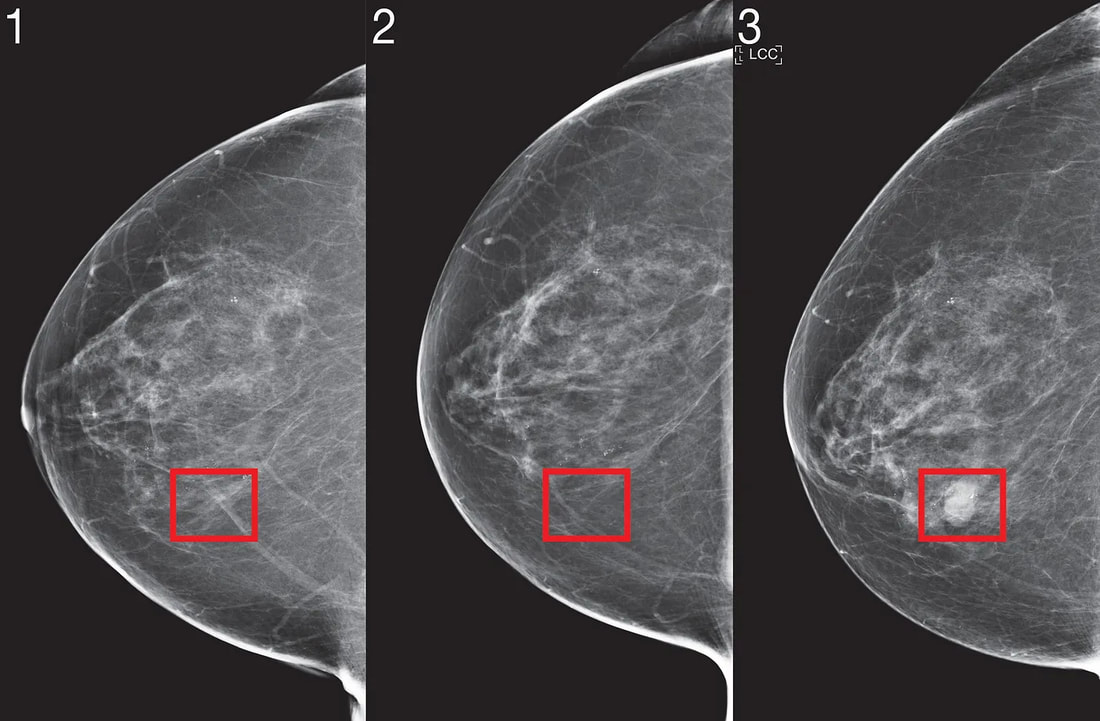|
Today, we will be discussing a topic near and dear to me: Breast Cancer. This is not a complete overview of all of breast cancers but an intro to helping anyone understand the epidemiology, screening, and risk factors for breast cancer. Breast cancer remains one of the most prevalent malignancies affecting women worldwide. Its epidemiology, screening modalities, and associated risk factors are critical areas of study and public health concern. Comprehensive understanding of these aspects is essential for early detection, effective treatment, and improved outcomes. In this article, we delve into the epidemiology of breast cancer, various screening modalities, the significance of family history, and other important risk factors. Additionally, we emphasize the importance of regular breast self-examinations, prompt medical attention for any concerns, and address the complexities of breast cancer during pregnancy. Epidemiology of Breast CancerBreast cancer is a multifactorial disease influenced by genetic, environmental, hormonal, and lifestyle factors. According to the World Health Organization (WHO), breast cancer is the most commonly diagnosed cancer and the leading cause of cancer-related mortality among women globally. The incidence of breast cancer varies across regions, with higher rates observed in developed countries compared to developing nations. Age is a significant risk factor, with incidence rates rising steadily with advancing age, peaking around 50 to 70 years of age. However, breast cancer can occur in younger individuals, underscoring the importance of early detection and screening initiatives. Screening Modalities for Breast Cancer Early detection through screening plays a crucial role in reducing breast cancer-related morbidity and mortality. Several screening modalities are available, including mammography, clinical breast examination (CBE), breast magnetic resonance imaging (MRI), and breast ultrasound. Mammography remains the gold standard for breast cancer screening, recommended annually for women aged 40 and older by organizations such as the American Cancer Society (ACS) and the U.S. Preventive Services Task Force (USPSTF). Mammography has demonstrated efficacy in detecting early-stage breast cancers, allowing for timely intervention and improved survival rates. Clinical breast examination, performed by healthcare professionals during routine check-ups, serves as a complementary screening tool to mammography, particularly in settings where access to mammography is limited. Breast MRI and ultrasound are adjunctive imaging modalities used in specific clinical scenarios, such as screening women at high risk of breast cancer or evaluating abnormalities detected on mammography. Importance of Family History and Other Risk Factors A family history of breast cancer is a well-established risk factor, indicating a genetic predisposition to the disease. Individuals with first-degree relatives (parents, siblings, or children) diagnosed with breast cancer have an increased risk of developing the disease themselves. Additionally, specific genetic mutations, such as BRCA1 and BRCA2, significantly elevate breast cancer risk. Other important risk factors include a history of radiation exposure (e.g., chest radiation therapy for Hodgkin lymphoma during childhood), previous breast biopsies demonstrating benign proliferative lesions, hormonal factors (e.g., early menarche, late menopause), obesity, alcohol consumption, and hormone replacement therapy. Breast Self-Examination and Prompt Medical Attention Breast self-examination (BSE) remains a valuable tool in breast cancer awareness and early detection. Women are encouraged to perform regular BSEs to familiarize themselves with their breast tissue and promptly report any new or suspicious changes to their healthcare provider. Although BSE alone is not sufficient for comprehensive breast cancer screening, it empowers individuals to take an active role in their breast health. Any concerns regarding breast changes, such as a palpable lump, changes in breast size or shape, nipple discharge, or skin abnormalities, warrant evaluation by a healthcare professional. Early diagnosis facilitates timely intervention and improves treatment outcomes. Bonus Topic: Breast Cancer during PregnancyNothing is more devastating than a diagnosis of breast cancer in a pregnant patient. Pregnant patients are already flooded with a myriad of emotions and challenges of the pregnancy itself and the calling of motherhood, making a breast cancer diagnosis, an emotional (and clinical) wrench in the gestational process.
Breast cancer diagnosis during pregnancy presents unique challenges due to concerns regarding fetal safety and treatment complexities. Delaying treatment in pregnant individuals with breast cancer is not advisable, as it may compromise maternal outcomes and jeopardize fetal well-being. Multidisciplinary management involving oncologists, obstetricians, and other specialists is essential to optimize treatment strategies while minimizing risks to both the mother and the developing fetus. In conclusion, breast cancer remains a significant public health issue globally, necessitating comprehensive strategies for prevention, early detection, and treatment. Understanding the epidemiology, screening modalities, and risk factors associated with breast cancer is crucial for healthcare professionals and individuals alike. By promoting awareness, encouraging regular screening, and fostering proactive healthcare-seeking behaviors, we can strive towards reducing the burden of breast cancer and improving patient outcomes. Eliel Arrey MD MBA Eliel Arrey, MD., MBA., is a health advisor, business advocate, entrepreneur, educator, and surgeon with a passion for Breast Oncology, Oncoplastic, and Cosmetic Surgery. History of Surgery series showrunner. He has been an educator for over 15 years and has vast experience teaching undergraduate students, nursing students, medical students, and resident physicians. Dr. Arrey is a physician at Grady Memorial Hospital in Atlanta and a Morehouse School of Medicine physician. He also serves as a faculty member at Kaplan, teaching Neurology and Surgery review courses to medical students worldwide. He is currently a PhD candidate in organizational leadership at Columbia International University. References:
0 Comments
Leave a Reply. |
Eliel Arrey
Official blog of Eliel Arrey Archives
April 2024
Categories
All
|



 RSS Feed
RSS Feed
